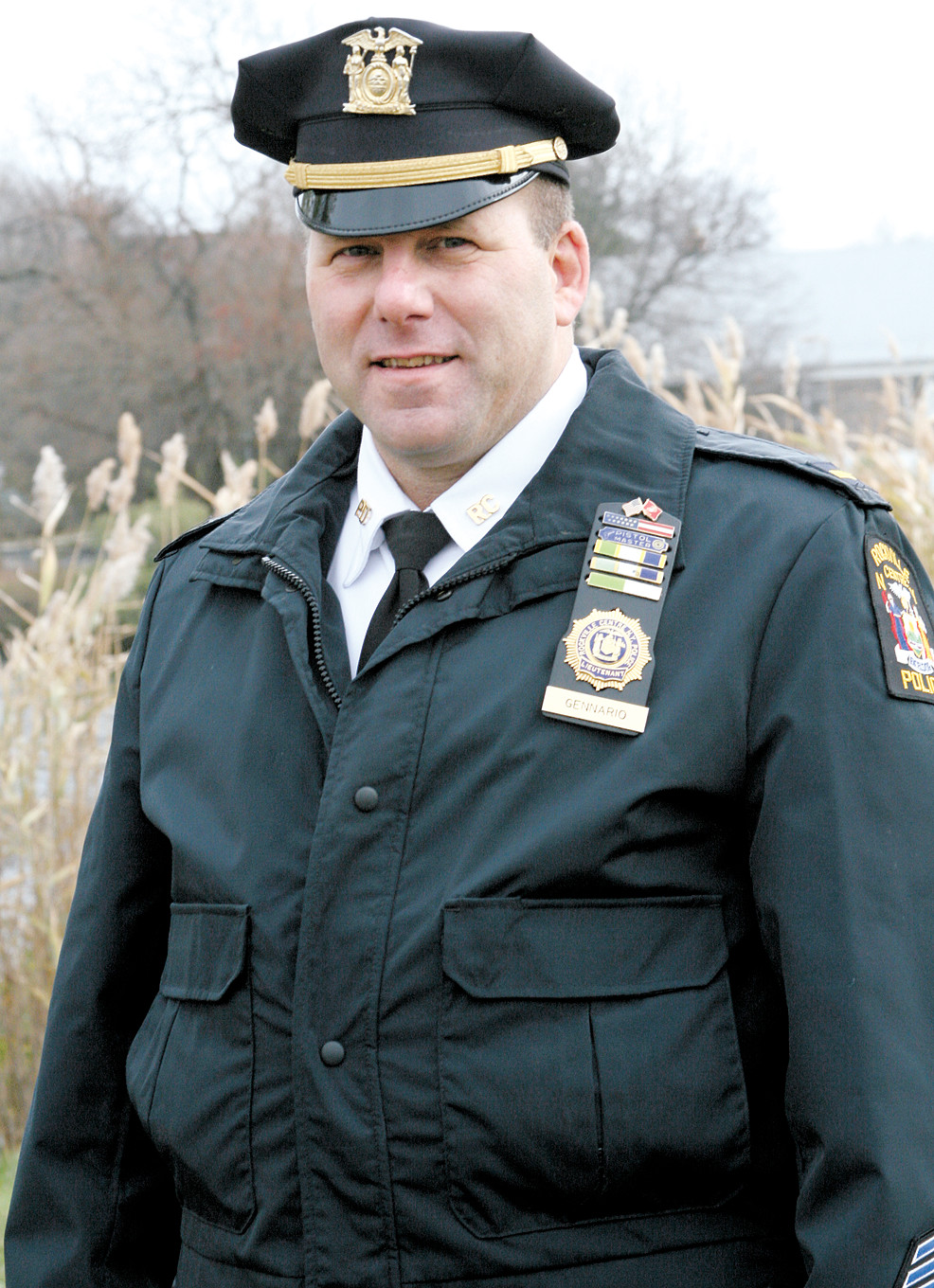Rockville Centre PD watches officer overtime closely
System monitors hours worked and helps prevent abuse
The Nassau County Police Department has recently come under fire for being hundreds of millions of dollars over budgeted overtime costs, as well as inadequately reporting extra hours worked.
It’s a problem that Rockville Centre Police Commissioner Charles Gennario says the village won’t have.
According to George Maragos, the county comptroller, the NCPD overspent on overtime by more than $96 million over five years, and doesn’t keep accurate measures of the overtime hours worked.
Gennario explained the village police department’s overtime practices to the Herald in detail, and said that he goes to great lengths to make sure every extra hour that officers work is documented.
“There’s no way a person can fudge their own overtime or get overtime we don’t know about,” Gennario said.
When an officer works overtime, they first have to get that overtime approved by a supervising officer, Gennario said. Then, when they return to headquarters, they have to fill out an overtime card, which details how much overtime was worked, why and who approved it. Each morning, the executive officer gets all the cards from the previous day, reviews them, and gives them final approval. If there are any inconstancies, he finds out why.
Gennario explained that there are different types of overtime his officers work. The most common is operational overtime, which is when an officer is working their post longer. They might make an arrest toward the end of their shift and have to take time to fill out paperwork, or get called to the scene of an accident and have to stay later.
There is also sick replacement overtime, when an officer covers a shift for another who’s sick; court overtime, for officers that have to appear in court; and injury overtime, for officers who have to cover for others who are out because of an injury.
Sometimes, Gennario said, officers will work grant overtime. That might be something like doing seatbelt enforcement checks for the state. The department is reimbursed for that cost.
The RVCPD makes it schedules a year at a time, Gennario said. So in January, officers know all the shifts they will be working for the year, and when their vacations are scheduled. Still, sometimes officers call in sick or need to take a day off outside their scheduled times.
And the department has lots of oversight on its overtime. Gennario said he sends monthly reports to village officials about how much overtime was used and where every dollar went. “So there’s no shenanigans,” he said.
Gennario said he has worked hard in recent years to keep overtime costs down. The general rule, he said, is to budget about 10 to 12 percent of the department’s payroll as overtime.
“If you can maintain that, you’re doing good,” he said. “Because you can’t eliminate overtime. People are going to call in sick, arrests are going to occur and people have to go to court.”
Last year, Gennario said he came in under-budget on overtime. And he expects to do the same this year. He estimated that the department has spent about $788,000 on overtime with two months left in the fiscal year. At the end of the fiscal year, Gennario said, he expects to have saved the village about $300,000. That money goes back into the general fund and helps reduce tax rates for the next year.
Helping to reduce overtime was the fact that the police department is now fully staffed. For more than a year, the department was operating with two fewer officers than were needed. But those officers were hired, and that helps keep costs down.
“It’s definitely more cost effective to have better staffing, for a multitude of reasons,” Gennario said. “If the cops get too much overtime, they get burnt out. If they can’t get a day off, they call in sick, and that costs me more overtime because I have to replace that guy.”

 44.0°,
Mostly Cloudy
44.0°,
Mostly Cloudy 




